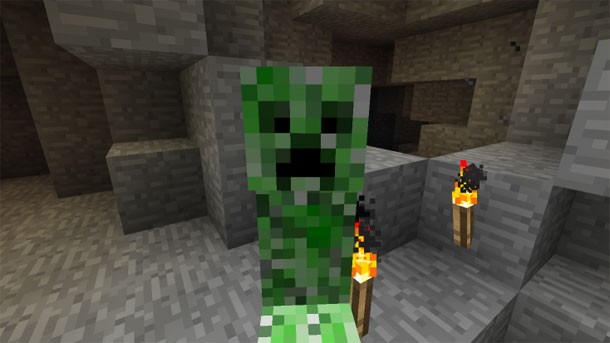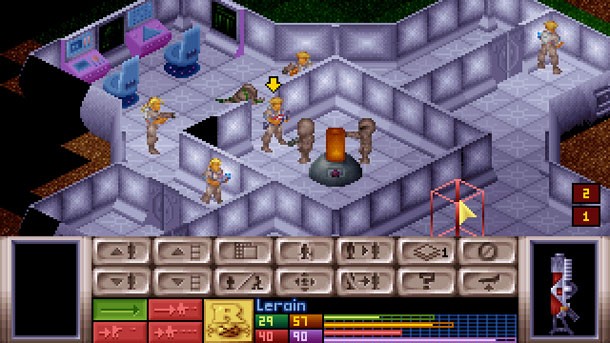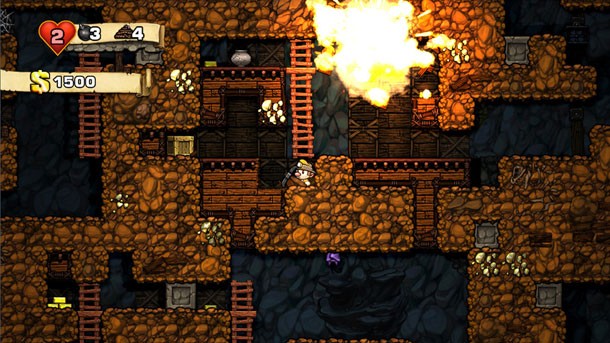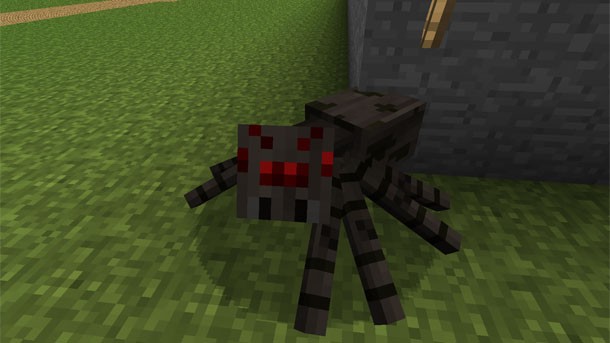Please support Game Informer. Print magazine subscriptions are less than $2 per issue
Opinion: What's At Stake?

Over the course of my gaming career, I've bested towering bosses, gunned down entire platoons of enemy soldiers, and saved the galaxy more times than I can count. I've become so jaded that even the most bombastic setpiece moments elicit little more than a smile or a muttered praise of approval. Over the past few months there have been a couple games that have gotten my heart pounding, and they aren't triple-A action games with million-dollar budgets. They are an 18-year-old strategy game, an indie platformer, and an open-world sandbox game. What makes these games so exciting? It's not what's on display. It's what's at stake.

X-COM
The original X-COM is a revered turn-based strategy title that
introduced gamers to a number of new ideas. For me, the most notable,
terror-inducing facet of X-COM is the threat of losing a beloved soldier to
permadeath
X-COM grants players a small (and by today's standards, underwhelming) amount of personalization options for your crew of professional alien hunters. But it's not just the fact that you can name your soldiers or pick their weapons. It's each soldier's history that counts, which is forged in the missions he or she survives.
When I play X-COM, I like giving my characters nicknames after a few missions, once I've gotten a sense of their "personalities." When three aliens took potshots at an unwitting soldier in a single turn, and all of them missed, I nicknamed him "Lucky." The sharpshooter who made a one in a million shot through a hole in the side of a ship to save a fellow soldier caught in the open earned the nickname "Deadeye." Each successful mission doesn't just grant your characters XP; it gives them back stories. When they eventually (or in my case, inevitably) die, their stories are over. That makes the simplistic, pixelated aliens in X-COM scarier than anything I've faced in Dead Space or Resident Evil.

Spelunky
Spelunky is the latest game I reviewed, and it is
responsible for some of the tensest gaming experiences I've had in recent
memory. Spelunky is a rogue-like game, which means that when you die, you have
to start all over again. Each of the game's 16 levels is randomly generated,
making every playthrough unique. You'll need quick reflexes, smart
decision-making, and a little luck to reach the end.
The further you make it through the 16 levels, the more the tension builds. Each close call adds to the feeling that "this might be the time!" Every death brings new knowledge that will hopefully save your life in a future playthrough.
After struggling with the final boss for hours, I had a stroke of luck. I randomly found a pickaxe in a crate, which gives you the ability to easily carve your way through the stone levels. The coveted item should have made the final boss battle a cinch, but a stupid misjudgment left me burning in a pit of lava. I have never been more disappointed with myself over a game, not just because I lost the progress, but because I blew such a lucky opportunity. When would I ever get a pickaxe right before the final boss fight again?
A few hours later, I beat the boss the old-fashioned way. I was more nervous in the last few seconds before my triumph than during any God of War boss battle, and the sense of accomplishment was greater, too.

Minecraft
One day I was exploring a world in Minecraft, when I came
across I giant rocky outcrop. The sun was still shining down, but the shade
created by the mountain structure was dark enough that enemies could spawn
underneath it. I wandered into the area, oblivious to the dangers that lurked
within. When I heard the monstrous, distorted hiss of a spider, followed by the
grunt of my character, I literally cringed in terror.
Minecraft's enemies are laughably rudimentary in their appearance. But the threat they pose to you and your belongs makes them more frightening than even the most hideous necromorph. As I ran back towards the sunlight, I wasn't thinking about how dumb the spider's straight, blocky legs look. I was thinking about the items I had crafted and the resources I had collected that were now at stake.
Creepers, Minecraft's most dreaded enemies, terrorize players not just by threatening their lives. They also explode your homes, the structures you've spent countless hours building up. The sense of loss they instill – that you won't be able to rebuild things exactly the way they were – makes even the most seasoned gamer flee in terror.
I'm not advocating that all game developers should include such harsh gameplay mechanics. The classic example of Steel Battalion erasing your game save if you don't eject from your damaged mech in time just strikes me as stupid. Even in the case of X-COM, Spelunky, and Minecraft, the penalties you incur can be more frustrating than they are engaging. Those frustrations aside, if a game can make me feel a deeper emotional connection to my character, I'll choose it over whatever mundane shooter is currently raking in everyone else's cash.










